Related Research Articles

Meir David HaKohen Kahane was an American-born Israeli Orthodox ordained rabbi, writer, and ultra-nationalist politician who served one term in Israel's Knesset. Founder of the Israeli political party Kach—whose legacy continues to influence militant and far-right political groups active today in Israel,—he was convicted of multiple acts of terrorism in the United States and in Israel.
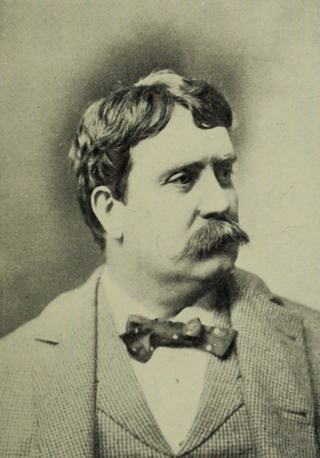
Daniel Hudson Burnham was an American architect and urban designer. A proponent of the Beaux-Arts movement, he may have been "the most successful power broker the American architectural profession has ever produced."

Daniel Libeskind is a Polish-Jewish American architect, artist, professor and set designer. Libeskind founded Studio Daniel Libeskind in 1989 with his wife, Nina, and is its principal design architect.

Glyndebourne is an English country house, the site of an opera house that, since 1934, has been the venue for the annual Glyndebourne Festival Opera. The house, located near Lewes in East Sussex, England, is thought to be about six hundred years old and listed at grade II.

The Player is a 1992 American satirical black comedy mystery film directed by Robert Altman and written by Michael Tolkin, based on his 1988 novel. The film stars Tim Robbins, Greta Scacchi, Fred Ward, Whoopi Goldberg, Peter Gallagher, Brion James and Cynthia Stevenson, and is the story of a Hollywood film studio executive who kills an aspiring screenwriter he believes is sending him death threats.
El Sayyid Nosair is a convicted terrorist, currently serving a life sentence. An Egyptian-born American citizen, he assassinated Meir Kahane in 1990 in New York City, and was later convicted of involvement in the 1993 New York City landmark bomb plot. Nosair was acquitted in his initial trial on murder charges for the assassination of Kahane, but in his later trial was found to have committed the murder.

The Staatsoper Unter den Linden, also known as the Berlin State Opera, is a listed building on Unter den Linden boulevard in the historic center of Berlin, Germany. The opera house was built by order of Prussian king Frederick the Great from 1741 to 1743 according to plans by Georg Wenzeslaus von Knobelsdorff in the Palladian style. Damaged during the Allied bombing in World War II, the former Royal Prussian Opera House was rebuilt from 1951 to 1955 as part of the Forum Fridericianum square. Nicknamed Lindenoper in Berlin, it is "the world´s oldest state opera" and "the first theater anywhere to be, by itself, a prominent, freestanding monumental building in a city."

The International Building Exhibition (Interbau) opened on July 6, 1957, in West Berlin's Hansa neighborhood. Situated in a park, Interbau showcased an array of designs by the foremost Western architects from 14 countries. It was to be a testament to Western values of freedom of expression where high and low-rise buildings merged seamlessly with the landscape and greenery.
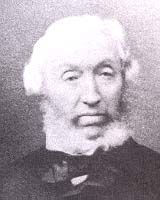
Anthony Salvin was an English architect. He gained a reputation as an expert on medieval buildings and applied this expertise to his new buildings and his restorations. He restored castles and country houses, and built a number of new houses and churches.

Cool Runnings is a 1993 American sports comedy film directed by Jon Turteltaub from a screenplay by Lynn Siefert, Tommy Swerdlow, and Michael Goldberg, and a story by Siefert and Michael Ritchie. It is loosely based on the debut of the Jamaican national bobsleigh team at the 1988 Winter Olympics, and stars Leon, Doug E. Doug, Rawle D. Lewis, Malik Yoba and John Candy. In the film, former Olympian Irving Blitzer (Candy) coaches a novice four-man bobsleigh team from Jamaica, led by sprinter Derice Bannock (Leon).
Michael A. Walsh is an American music critic, author, screenwriter, media critic, historian, and cultural-political consultant.
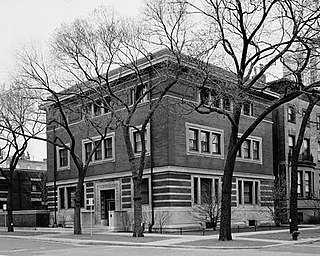
The Madlener House, also known as the Albert F. Madlener House, is a 20th-century mansion located in the Gold Coast neighborhood of Chicago, Illinois, USA. It is the work of architect Richard E. Schmidt (1865-1958) and designer Hugh M.G. Garden (1873-1961). Commissioned in 1901 and completed in 1902, the house was built as the residence for Albert Fridolin Madlener, a German-American brewery owner, and his wife, Elsa Seipp Madlener. Since 1963, it has been the headquarters of the Graham Foundation for Advanced Studies in the Fine Arts. In 1970, The Madlener House was placed on the National Register of Historic Places, and in 1973, it came under the protection of a Chicago ordinance protecting the city's historical and architectural landmarks. The house was fully remodeled and renovated by architect Daniel Brenner (1917-1977) in 1963–64.

Innsbruck Hauptbahnhof is the main railway station in Innsbruck, the capital city of the Austrian federal state of Tyrol. Opened in 1853, the station is a major hub for western and central Austria. In 2019, it was the 8th-busiest station in the country, and the 2nd-busiest outside of Vienna after only Linz Hauptbahnhof, with 315 train movements and 38,500 passengers daily.
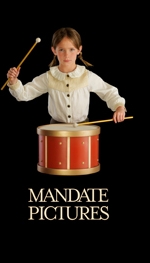
Mandate Pictures was an independent full-service film production company acquired by Lionsgate in 2007.

Gabriel Kahane is an American composer and singer-songwriter.

The Lincoln cent is a one-cent coin that has been struck by the United States Mint since 1909. The obverse or heads side was designed by Victor David Brenner, as was the original reverse, depicting two stalks of wheat. The coin has seen several reverse, or tails, designs and now bears one by Lyndall Bass depicting a Union shield. All coins struck by the United States government with a value of 1⁄100 of a dollar are called cents because the United States has always minted coins using decimals. The penny nickname is a carryover from the coins struck in England, which went to decimals for coins in 1971.
Enamul Karim Nirjhar is a Bangladeshi architect and filmmaker.

Muscular Judaism is a term coined by Max Nordau in his speech at the Second Zionist Congress held in Basel on August 28, 1898. In his speech, he spoke about the need to design the "new Jew" and reject the "old Jew", with the mental and physical strength to achieve the goals of Zionism. Nordau saw Muscular Judaism as an answer to Judennot.
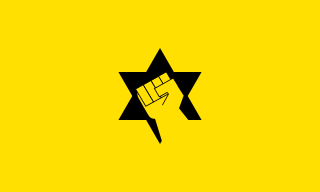
Kahanism is a religious Zionist ideology based on the views of Rabbi Meir Kahane, founder of the Jewish Defense League and the Kach party in Israel.

Kach was a radical Orthodox Jewish, religious Zionist political party in Israel, existing from 1971 to 1994. Founded by Rabbi Meir Kahane in 1971, based on his Jewish-Orthodox-nationalist ideology, the party earned a single seat in the Knesset in the 1984 election, after several electoral failures. However, it was barred from participating in the next election in 1988 under the revised Knesset Elections Law banning parties that incited racism. After Kahane's assassination in 1990, the party split, with Kahane Chai breaking away from the main Kach faction.
References
- The Architects at IMDb
- Oehmig, Richard (16 November 2009). 'Überholt' von der Geschichte? Drei DEFA-Spielfilme im Blickpunkt. ISBN 978-3-640-47262-8.